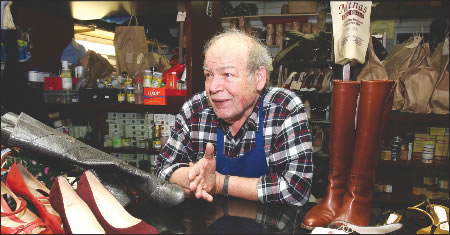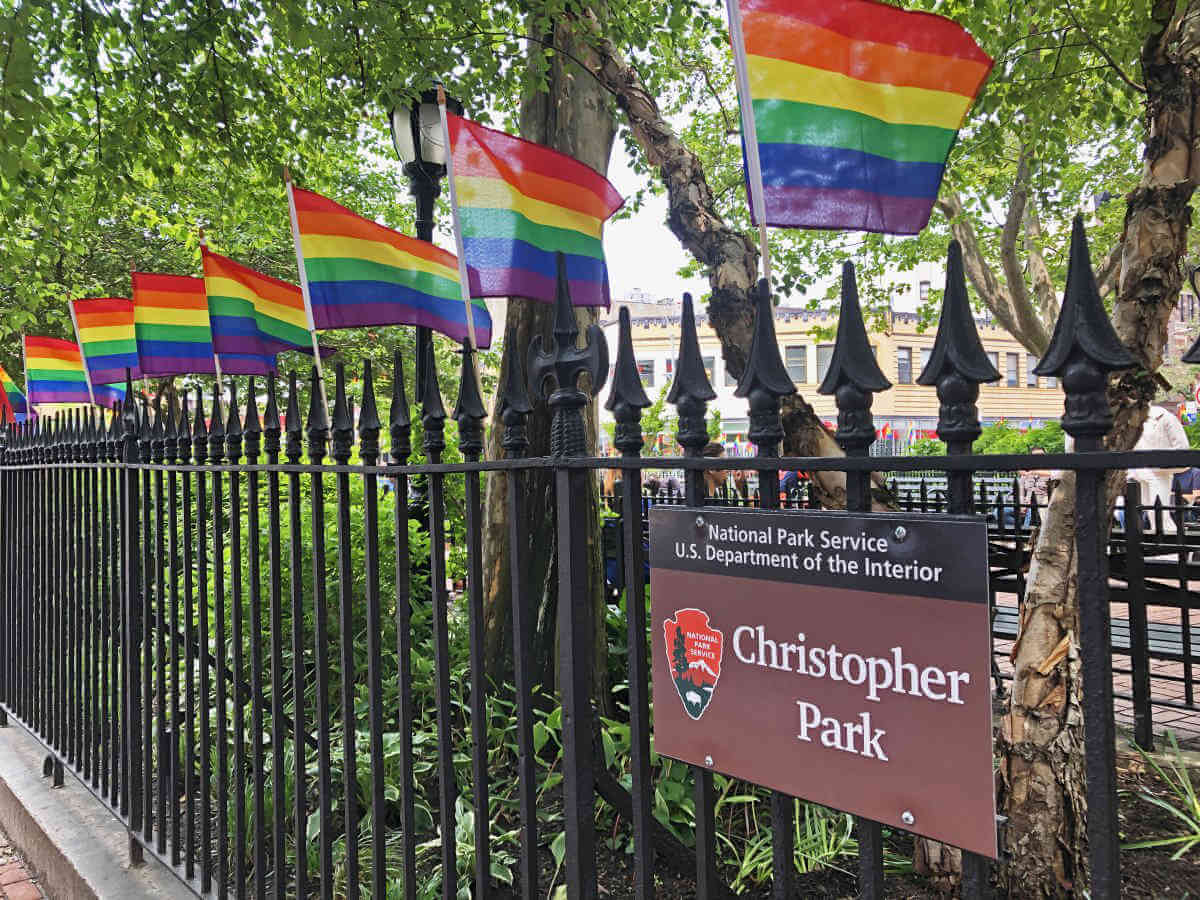By Candida L. Figueroa
Working through the terrorist attacks and now the economic collapse, Minas Polychronakis says the last thing shining on Wall St. are the shoes. His repair and shoeshine business has come to a sluggish creep after more than 30 years in Lower Manhattan.
The store at 67 Wall St. brings in at most 100 people a day. Executives get a $3-shoeshine as their heads dodge from the newspaper to paperwork. The smell of shoeshine polish is overwhelming and during off-peak hours, Polychronakis, 68, takes cigarette breaks while chatting with his workers. He sees his clients as friends and family, and says their mood has changed.
“I love the people here, but it’s different now,” he said. “It’s very bad time for the customers, I can see. Most come in and they talk with me but they’re worried like me. I give them reasonable price because that’s what they can afford. My customers are trying to make the best with what’s out there.”
He pays $8,500 in rent for the small shop, not including utilities, and he’s unsure about his own future in the Financial District. The average person spends $6 to $10 for shoe repairs. Still, the shop mainly depends on specialty jobs. Stretching out the calves of boots and re-lining the inside of bags “keeps business up” Polychronakis said, bringing in about 35 percent of the revenue. His lease expires in five years and he also has a nearby shop on Exchange Pl.
Frequent clients visit the shop for conversation, and they miss Polychronakis when he’s not behind the counter. On his lunch break, one woman came in asking “Hey, where’s the chief,” and asked his workers to “give the boss my love” after picking up her small pair of black shoes.
Battery Park City resident Georgia Hawk, called him “a bright face to a slow morning,” referring to the change in pace at the once bustling area.
His loyal female customers are something new for the shoemaker, who started Downtown in 1971. Women would get angry when he didn’t have any napkins for them to place over their skirts during a shoeshine. “Now they wear pants. That’s called women’s liberation, no?” Polychronakis joked.
The shoemaker remembers sitting comfortably at the World Trade Center mall, which was his most successful shop. During what he refers to as “the more wealthy times,” rent was $5,500 a month including the garage and electric warehouse. The spacious shop attracted up to 1,000 customers a day, including Bill Thompson, who was then president of the Board of Education and is now the city comptroller.
The two reunited in 2004 when Polychronakis was presented with a Special Recognition Award from Comptroller Thompson during a Greek Heritage Celebration. That was the same year he had once planned to retire from the W.T.C location.
Polychronakis sometimes checks his ratings on the internet and says he owes a lot to the Web sites for attracting business. A four-star review recently brought in Grace Pincher, a Tribeca resident, to repair her $150 bright red Jessica Simpson pump shoes. “A repair shop Uptown was going to charge me $100 to fix the soles and heels of these,” Pincher said as she held up her $45 bill. “And he threw in a shoe shine. I love this guy!”
Polychronakis does not plan on closing either shop in the area, but says he is struggling to figure out any future plans. “I don’t know where my business is going but I believe in America, and we gonna recover.”



































